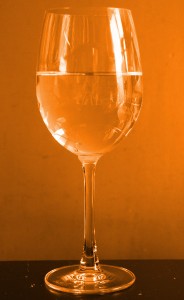Menopause is one of the major health concerns experienced by women in their early 50’s. Reduced oestrogen levels in the body cause a number of symptoms such as insomnia, hot flushes, depression to name a few. The need for hormonal balance is treated by hormonal treatments and supplementation like Estrobalance with DIM.
Estrobalance with DIM balances estrogen levels and promotes healthy estrogen metabolism. Estrobalance contains specially formulate DMI that is readily absorbed by the body to promote hormonal balance. The supplement that is considered safe to use is also known to improve breast wellness and healthy cell promotion in the body.
Aside from hormonal therapy and supplementation, diet planned to address specific nutritional requirements of menopausal women is known to alleviate symptoms of menopause.
Eat healthy to manage symptoms
- Night sweats and hot flashes
One of the most common and dreaded symptoms of menopause, night sweats and hot flushes can be effectively managed when the following dietary suggestions are followed:
What to eat
- Diet consisting proteins, healthy fats and fibre rich phytonutrients.
- Pepper, Garlic, strawberries, pasta and moderate amount of red wine.
- Mediterranean styled diet
- Plenty of clear water and liquids, fresh fruits and whole grains
What not to eat
- Junk food that contain unhealthy fats and sugar in high amounts
- Excessive caffeine, alcohol that may dehydrate the system
- Fatigue and weight gain
Hormonal imbalance in the body can cause extreme fatigue and a slow metabolism resulting in accumulation of fat leading to weight gain.
What to eat
- In general, moderate intake of nutritious food is recommended to combat slow digestion during menopause.
- Complex carbohydrates such as wholemeal pasta, rice, bread and brown grains can help the body to digest better.
- Food rich in dietary fibres such as whole grains, cereals, fresh fruits and vegetables facilitate digestion and helps menopausal women to manage their weight and energy levels.
What not to eat
- Processed food that contain unhealthy fat and sugar should be eliminated from the diet
- Crash diets are not healthy to lose weight.
- Consuming white bread or rice in excess results in weight gain
- Dry and itchy skin
With the onset of menopause women experience dry and itchy skin due to reduced levels of estrogen.
What to eat
- Food rich in ‘smart fats’ i.e., Essential Fatty Acids. High content of essential fatty acids are found in fish (Salmon/Sardines), fortified eggs, nuts, soy, flaxseed oil and safflower oil.
- Food rich in Vitamin C such as fresh citrus fruits, vegetables like peppercorns, tomatoes, potatoes, greens etc, can sooth the dry skin.
- Consumption of water and clear liquid is found to be helpful for dry skin.
What not to eat
- Excess of caffeine and alcohol will dehydrate the system and skin loses its moisture leading to itchy and dry skin.
- Unhealthy fats and sugar affect the skin causing acne and dryness.
- Irritability and depression
As per a study conducted by Bromberger JT, Chang YF, Kravitz HM and others on major depression during menopausal transition, it was found that peri-menopausal or post menopausal women were twice or four times likely to develop major depression.
What to eat
- Food rich in Essential fatty Acids is known to reduce depression and mood swings.
- Consumption of fresh fruits and plenty of water is known to calm the mind and body.
What not to eat
- Excess of alcohol and smoking can aggravate mood swings.
- Excess of caffeine is found to affect sleep patterns and aggravates mood swings and depression.
- Junk food is addictive and often leads to weight gain causing depression or mood swings.
- Bone health
Menopausal joint pain facts are startling. According to a population survey, joint pain was more prevalent in women than men. 41% of Peri –menopausal and 57% of post-menopausal women experienced sever inflammation of the joints. Menopausal women are at an increased risk of developing Arthritis or Osteoporosis.
What to eat
- Foods rich in calcium and Iron such as greens are beneficial to prevent bone loss.
- Beans are an amazing source of calcium
- Dietary supplementation for Calcium and iron is also advised.
What not to eat
- Crash diet with unhealthy fats and sugar may deprive the body of essential nutrients to fight bone loss resulting in aggravated symptoms.
Prognosis
A menopause diet is beneficial to fight menopause symptoms. Aside from nutritious food women can also choose the right dietary supplements from health product reviews to manage the symptoms effectively.
References:
- https://blogs.consumerhealthdigest.com/10-best-foods-for-menopause-symptom-relief.html
- https://www.consumerhealthdigest.com/menopause-center/
Author Bio
Kathy Mitchell was born and raised in the USA. She has done MA in English literature. She is contributing to consumer health digest since 2011. You can contact her on Facebook and Twitter
